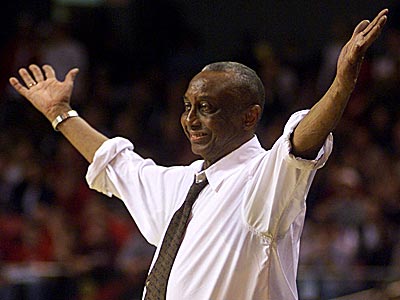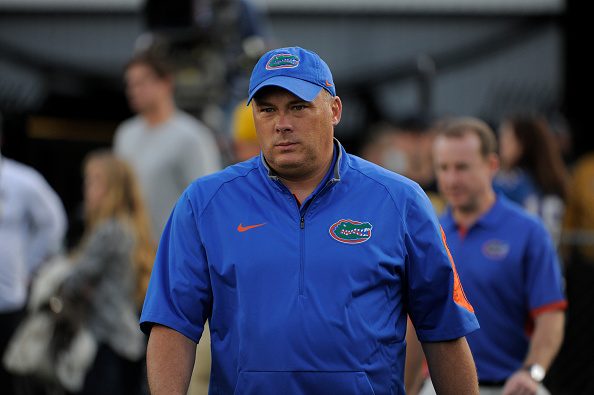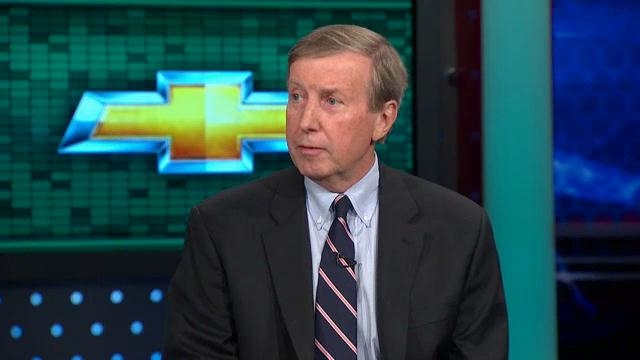John Chaney Passes Away; A Tribute to a Temple Icon
Hall of Fame head coach John Chaney, known for his long, successful run at the helm of Temple’s Men’s Basketball team, passed away on Friday morning. The shockwaves were felt around the campus he once roamed daily, even from students nearly a generation removed from his time at Temple.
As a student exploring Philadelphia, the ultimate guiding light back to Temple’s campus is the “T” on Morgan Hall North’s side. It towers over the campus and presents a place in which the common eyes can rest their gaze on the university from wherever they are.
For anyone who identifies with Temple University, there is another figure who metaphorically looms that large around the country.
Find yourself beyond the reaches of Temple’s campus and the consistent gaze upon the school lies in Hall of Fame basketball coach John Chaney. In so many ways, Chaney’s principles and values remain a piece of the fabric of Temple. His work was the guiding force back to this school that so many clung onto.
He was the “T” for the rest of the world.
North Philadelphia and the university it holds lost that light on Friday afternoon. The iconic coach leaves behind a multifaceted legacy, accomplishing more in his lifetime than many would hope to in three.
“John Chaney was more than just a Hall of Fame Basketball coach,” Acting Temple Athletic Director and former basketball coach Fran Dunphy said in a statement Friday afternoon. “He was a Hall of Fame in life. He touched countless lives, including my own.”
One word was echoed through social channels immediately as new broke: Legend.
An all-encompassing, albeit lazy, way of describing who has transcended the world in so many ways that it’s almost impossible to list off every one. The word is a cliche, quite overused and can be tossed in as a filler to make something more exciting.
In many cases, the meaning of the word looms larger than who it describes.
For John Chaney, the word barely scratches the surface of who he was and the legacy he leaves behind at Temple University. The word “legend” underserves who Chaney was, not properly glorifying his contributions that will long outlive all of us.
In 24 seasons at the helm of Temple’s program, he amassed 516 wins, went to 17 NCAA tournaments and five Elite Eights. He was named Division 1 Coach of the Year twice and his 1987-88 team finished the season as the top ranked squad in the country.
All of this at a commuter school in an urban setting. Far from the grandeur and spacious setting of the sport’s blue blood schools, he envisioned a school that could be better in many ways. Chaney was a champion of the mid-major, placing an A-10 program at the center of the national conversation.
The impact he has had on the game of basketball, the Temple community and the world are far ranging that it’s impossible not to feel his loss. It’s something I didn’t quite grasp until I got onto this campus and it’s something I will likely never fully grasp.
Temple was brought into living rooms all over the country because of what he did. The school placed a state of the art basketball facility in the heart of North Philadelphia because of what he did. Some of the very things taken for granted day to day at Temple are direct results of what he has done.
From turnovers to the matchup zone to the way he built his rosters, there was a cutting edge to the way he did things on the floor. The brutal non-conference schedules, the push to get on national TV and breaking down discriminatory institutions, like Proposition 48, were otherworldly off of the floor.
The last of those three, clearly his most influential. Chaney and Georgetown counterpart John Thompson, who passed away just five months ago, were incredibly influential Black head coaches who gave opportunities to student-athletes in a system that was rigged against them.
Prop 48, specifically, was a rule that docked student-athletes a year of eligibility if they failed to meet certain grades and standardized test scores. Aaron McKie, Eddie Jones and Quincy Wadley, to name a few, all were impacted by the rule that did disproportionate harm to thousands of Black athletes seeking the opportunity to further their education and play basketball at the Division 1 level. Chaney took on the rule and took a chance on players impacted by it as a way of giving them an opportunity for education.
“Coach Chaney was like a father to me. He taught not just me, but all of his players more than just how to succeed in basketball,” Temple head coach and one of Chaney’s former stars Aaron McKie said through a statement on Friday. “He taught us life lessons to make us better individuals off the court. I owe so much to him. He made me the man I am today.”
“He wrapped his arms around you and made you a part of his family,” Dunphy said to reporters late Friday afternoon.
The more you hear about Chaney, the more you sit back in awe of who he was. Here was a man who grew up poor in the Jim Crow South and became one of the greatest head coaches of all time. Along the way, he never lost sight of who he was, fighting hate and racism while kicking down the door open for opportunities for others.
The basketball success alone would be worthy of a celebration. His story alone would be worthy of celebration. Together, they created someone who places the bar at a nearly unreachable level.
This column comes from a Temple student who was in diapers the last time Chaney’s team went to an Elite Eight. One who had hardly begun elementary school when Chaney retired. One who only ever had the privilege of speaking to the legendary head coach once.
However, Chaney is that figure looming above the rest. A stark reminder of all that we can strive to be in our lives and the living embodiment of what Temple University says they are all about. Rest easy, Coach.





Great article Ray!